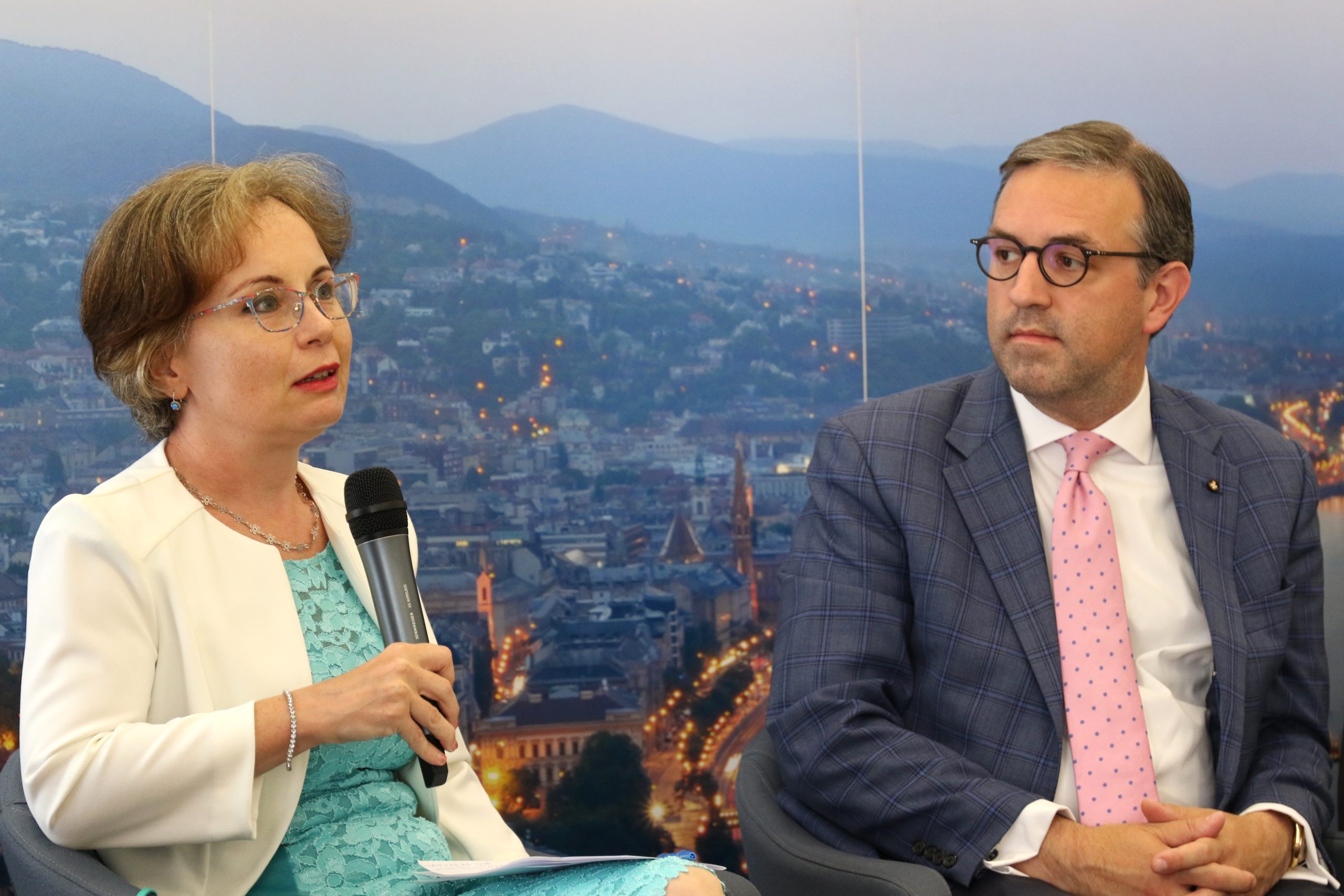On July 7th 2023, the Hungarian Institute of International Affairs (HIIA) hosted an event entitled „The BLM-Moment of France? Political and Security Implications of the Riots in France”. The event’s participants were Gladden Pappin, president of the Hungarian Institute of International Affairs, Bianka Speidl, senior researcher at Századvég Foundation, and Eszter Petronella Soós, senior lecturer at Milton Friedman University. The event was moderated by Hanga Horváth-Sántha, research fellow of the Hungarian Institute of International Affairs.
Answering the first question of the event about possible parallels between the riots currently ongoing in France and the Black Lives Matter movement’s protests of 2020 in the United States, Gladden Pappin called attention to the dangerous tendency of imposing American analytical tools to other contexts. He remarked that such categories – for example, systemic racism – are not only lacking scientific objectivity but are of limited analytical utility in non-American cases. He also underlined the fact that the causes of mass forms of social unrest cannot be reduced to a single element: multiple factors must be identified in order to gain a realistic understanding of such events.
Continuing the search for possible parallels, the next question concerned the riots that ensued in 2005, triggered by two North-African teenagers being electrocuted at an electricity substation while fleeing from the French police, and the reason why these scenes keep reoccurring in France. Eszter Petronella Soós listed physical, social, and identity-related reasons as root causes of tensions within communities with migrant backgrounds in France. She highlighted hopelessness as a prevalent emotion in these communities, due to the lack of sense of achievement in the supposedly meritocratic French Republic – therefore, she argued, figuring out how these people can participate in the benefits of the Republic will be part of the solution to this complex issue.
To provide a clearer profile of the participants of the current riots, Bianka Speidl characterized them as having all kinds of radical identities. At the same time, she opined that the protesters are not acting towards a specific goal, or in accordance with a greater plot, but are connected by their resentment for the system.
Reacting to President Macron’s remarks about the violent protests being an unacceptable instrumentalization of the death of a teenager, Gladden Pappin commented that radicals taking advantage of the situation are just one element of the issue. He cited the increasingly more severe food crisis in France, combined with the existence of a large, disadvantaged group and the triggering incident as further essential factors to the current reality that also need to be observed.
On the topic of cultural insecurity, Bianka Speidl explained it is twofold, experienced by both the majority society and minorities with immigration backgrounds. According to her, both sides are feeling attacked by each other, which results in a crash that cannot be reconciled, and breeds aggression. Eszter Petronella Soós also underlined the mutual distrust between these societal groups – especially between migrant minorities and the police –, and brought up the possibility of community policing as a way of creating trust within society.
To conclude the event, Gladden Pappin spoke about frequent neoliberal assumptions – regarding borders, nations, cultural differences – that are making the discussion of political questions and political decision-making regarding migration extremely difficult in the West. Bianka Speidl remarked that political leaders should listen to public opinion and take migration problems more seriously, while Eszter Petronella Soós highlighted the role of national education as an important part of integration and therefore, the solution.
Photos by Hungarian Institute of International Affairs (HIIA)

